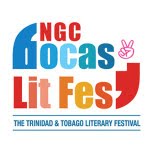—Sylvester Devenish
ACCORDING to one historian he
was, “the most outstanding poet Trinidad has ever produced”. The same writer—Anthony de
Verteuil—tells us he was also, “a prominent figure in Trinidadian society as
Surveyor General; in scientific circles; and also in encouraging a spirit of patriotism
among all Trinidadians whatever their original nationality”. In a 392-page book
about him, de Verteuil states, “he was one of the best known characters among
French creoles in Trinidad.” Long before the controversy over judges and MPs
pensions, he was at the centre of one of the island's first scandals over
retirement pay. When he died in 1903, the Schoolmaster
magazine, wrote, “As a Poet his name will be immortalised in literary circles”.
A contemporary, Léon de Gannes, stated, “He sees all, knows all, is
everywhere.” But today he is forgotten.
Peter James Sylvester
Devenish, who came from an Irish family, was actually born at Nantes on March
9, 1819. He lived in Trinidad for five years before being sent back to France
to study. He read a wide range of subjects at the College des Oratoriens of Vendôme
where, according to lore, he was presented to Ferdinand, the old King of
Naples, after a fencing match. While in Paris, Devenish apparently made the
acquaintance of the authors Jules Janin and Honoré de Balzac.
Devenish reluctantly
returned to Trinidad at the age of 22. He longed for Paris life. But things
changed when he fell in love with and married Laura D’Abadie here on June 16,
1842. He was educated, cultured and became popular.
“The general impression in
Trinidad was that Sylvester Devenish knew everything about anything,” de
Verteuil states in his 2007 book, entitled, Sylvester
Devenish: Trinidad’s Poet. We learn how Devenish once delivered a talk to
the Scientific Society entitled, ‘A Few Notes on Alligator Shooting in Trinidad’.
He recommended grilled babiche with lime and pepper sauce.
In 1850, though not an
engineer, Devenish was appointed Inspector of Roads. In 1857, he was made
director of the Irois Forest Convict Settlement; in 1860 Superintendent of the
government saw-mill in Port-of-Spain; in 1861 engineer of the Port-of-Spain
Wharf Improvement in which capacity he constructed the new sea-walls. In 1874,
he was Justice of the Peace for the counties of St David, St Andrew, Nariva,
Mayaro. From 1875 everybody gave up: he was made Justice of the Peace for the
whole island. When the time came to open the Royal Victoria Institute at the
top of Frederick Street on September 17, 1892, it was Devenish who would cut
the ribbon, not the governor of the colony.
 |
| Rosary Church, Port of Spain, designed by Devenish |
De Verteuil states Devenish
played, “a significant if very small part in enlarging the boundaries of 19th
century botany.” He collected 126 specimens of wood. In 1867, he was appointed director
of the Botanical Gardens at St Anns. Over 43 years, Devenish surveyed
properties all over the land. “I have all the maps of the island in my head,”
he once reportedly said. De Verteuil tells us, “he was known to the
Spanish-speaking inhabitants as El Duende de la Montana (the Spirit of the
Mountains); and to the creoles as Papa Bois (Father of the Woods)”. In 1875,
Devenish was appointed Surveyor-General of Trinidad, the highest surveying post
in the island. He retained the post until 1878. In the 1870s the New Era carried an account of him:
“passing over roaring torrents by swinging himself from bush rope like a
monkey; making roads in the Savannah of Caroni; sleeping on a tree in the
middle of a lagoon, astride of a branch, on top of a nest of stinging ants. Sun,
rain, gales, thunder, lightning - the impossible does not deter him in the
least.”
However, questions were
raised about the fair allocation of state survey work. Devenish arguably became
caught up in politics relating to feuding French and English factions in
Trinidad society. This culminated with his suspension on Christmas Day 1878
from the post of Surveyor-General by the new British Governor General. There
was outcry. A commission of enquiry was established. The governor who fired
Devenish was later called, “one of the most unprincipled governors ever seen in
the West Indies”. Devenish’s pension of £150 was deemed too low and raised to
£200.
Despite all this, de
Verteuil states, “Devenish was above all a poet. ” Many of his poems were sold in
the streets on loose pages for a penny. The poems follow a rigid style, which Devenish
regarded as classical. Putting aside literary merit, the poems are, as de
Verteuil correctly observes, valuable because they are snapshots of society then.
You also sense they are meant to be sung. They have a kind of stony grace, and
do what Paul Valéry says poetry should do, dance. The poet wrote in a time when
a ballad was recited at Belle Air dances as long as five years after.
Devenish died on January 31, 1903. The funeral took place at the Rosary
Church, Port-of-Spain. Ironically, and perhaps fittingly, that stunning gothic
church had been designed by him. The church stands today, even if we do not
remember Papa Bois' name.
***





















